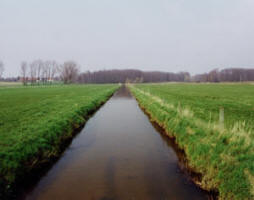 On-farm irrigation development project
On-farm irrigation development project
Project area. The project will be implemented in selected areas of the five governorates of Assiut, Qena and Sohag in Upper Egypt and Kafr El-Sheikh and Beheira in Lower Egypt. Overall, 12 branch canal irrigation command areas and their associated villages will be covered.
Target group. The poorer strata of the rural population in the project area will be targeted, primarily smallholders with less than 3 feddans (1.26 hectares), tenants, sharecroppers and landless people. Priority will be given to unemployed young people, poor women and woman-headed households. Approximately 1 million households will make up the target group.
| Project number | 1447 | ||
|---|---|---|---|
| Subject(s) | AGRICULTURE | ||
| Geographical coverage | Egypt | ||
| Budget (in €) | 41235840 | ||
| Programme | IFAD | ||
| Web site | http://www.ifad.org/operations/pipeline/pn/eg.htm | ||
| Objectives | The overall goal is to improve the livelihoods of the rural poor
(small farmers, the landless, rural women and unemployed young people)
through targeted interventions to enhance the productive potential of
farms and raise household income. This will be achieved by: (i)
improving the irrigation network, prioritizing areas where an
overwhelming majority of the farmers own less than three feddans; (ii)
enhancing the agricultural productivity of smallholdings through an
appropriate integrated research and extension system; (iii) supporting
marketing for smallholders and the landless; and (iv) improving rural
financial service access and providing capacity-building to promote
employment and income-generation for the target group through the
development of microenterprises and small businesses.
Project description. In addition to project coordination and management, the project will have three components:
|
||
| Results | Important features. The proposed project, which builds on and complements other interventions in the irrigation sector, is fully aligned with the strategic objectives of IFAD's country strategic opportunities programme. It is also consistent with the Government's poverty reduction strategy and agriculture and rural development strategy. The project has a number of features that are innovative in the context of rural Upper Egypt: (i) introduction of a new integrated approach to irrigation system improvements in which user involvement from branch canal downward will ensure completion of the improvement process; (ii) provision of sustainable access to financial services for the target group in five governorates through partnership with the Social Fund for Development (as an apex institution) and community-based financial intermediaries; (iii) replication - with adjustment to local conditions - of the IFAD-supported farming systems research approach to render activities market- and demand-driven; and (iv) introduction of a participatory extension approach that, for the first time, will bring extension staff from the Ministry of Agriculture and Land Reclamation together with staff from the irrigation advisory services of the Ministry of Water Resources and Irrigation and will deliver a harmonized message on crop and water use to the farmers. | ||
| Period | [01/10/2009 - 30/10/2017] | ||
 you are not logged in
you are not logged in





